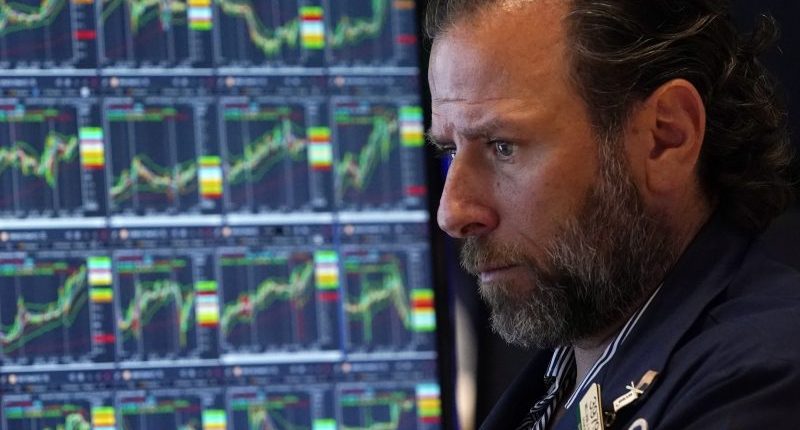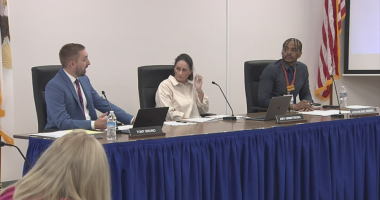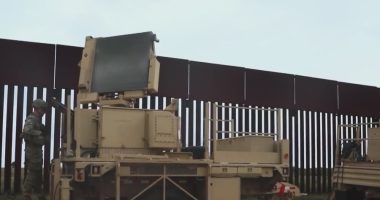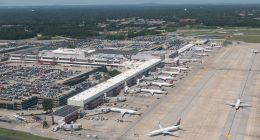Share this @internewscast.com

(NEXSTAR) — The term “recession” has been frequently mentioned in recent weeks due to economic uncertainties and tariffs that appear to have affected the stock market with dramatic fluctuations, impacting confidence among consumers and businesses.
President Donald Trump has faced multiple inquiries about whether the U.S. might fall into a recession. In a recent discussion, Trump expressed that he is not concerned about a recession but acknowledged that “anything can happen,” emphasizing his belief that “we’re going to have the greatest economy in the history of our country.”
Amid speculation and concerns that the U.S. has fallen into a recession, here are four things to know.
What is a recession?
Generally, a recession is defined as an extended period of negative economic growth, explained James N. Mohs, an associate professor of accounting at the University of New Haven, to Nexstar. A recession usually persists for just a few months, in contrast to a depression, which is more severe and can last for years.
“To give perspective to the differences, there have been 30 or more recessions as part of the boom or bust economy, but [only] one depression in the last 125 years,” he added.
Many link job losses and rising unemployment rates with recessions, Tyler Schipper, an associate economics professor at the University of St. Thomas, said. A more technical definition relies on two consecutive quarters of negative gross domestic product growth, which is often “a good enough definition to catch most recessions.”
Who determines when we’re in a recession?
The nonprofit, nonpartisan National Bureau of Economic Research, or NBER, determines when we’ve reached a recession. This typically comes as a retrospective declaration, not a proclamation for the present.
The group of economists reviews not only employment levels and GDP but also real income, industrial producers’ outputs, and wholesalers’ volumes, among other economic evidence, Mohs explained.
“After the fact, [the NBER economists] will go back and say, well, when did we start seeing a broad downturn across a lot of different industries in the economy that was accompanied by job losses?” Schipper said. “They’re not in the business of trying to predict [a recession] ahead of time, or even necessarily while we’re in it. They get the benefit of having a lot of data after the fact.”
Is the US in a recession?
Despite economic concerns, layoffs and tariff turmoil, indicators aren’t signaling that the U.S. has entered a recession.
“Whenever you have markets that are reactive to uncertainty, there is a tendency to think that the economic sky is falling,” Mohs said, explaining, instead, that market activity serves only as one of the multiple factors considered by the NBER economists. “[It] should not be used as an indicator of the entire economy’s performance.”
Schipper focused on another aspect: the labor market.
“Employers are adding fewer jobs, but they’re not necessarily laying off a bunch of people,” he said, describing it as a “lack of churn.” Those with a job may not be at risk of losing it, while those searching for a job are having a hard time finding one.
Still, Schipper noted the economy did contract during the first quarter of the year. That was primarily due to “firms … thinking ahead about tariffs.” Consumers may also have been considering tariffs, with consumption spending, done by individuals or households, changing.
The consideration may also lie within the “vibes” of the overall economy, he explained. Schipper pointed to car sales, which spiked in March after tariffs targeting vehicles were announced. “People have downer vibes, and that led them to change their behavior and buy cars before tariffs hit.”
Can you prepare for a recession?
If you are concerned about a prolonged economic downturn, there are several areas in which you can take steps to prepare. Financially, that could include starting or increasing your emergency savings and long-term investments, Mohs said. Regarding the labor market, he suggested building a professional network. Other general advice includes stocking up on non-perishable items you may need if the supply chain is interrupted again.
The prices of non-necessity items have been known to decline during recessions, sometimes sparking “deflation,” according to Schipper. That includes air travel, an area other industry analysts have already suggested could see prices drop.
Other big-ticket items, especially those made in China, could see price increases amid tariffs. If you have been considering buying appliances, for example, and have the funds to do so, Schipper said now may be the time to purchase them. The same advice could go for cars, he adds.
“I don’t think it’s ever good financial advice to encourage people to buy something they don’t need right now, simply because it’s going to be higher priced right now. But if that was a decision you were looking at making soon anyways, might make sense to move it up for like the personal finance guidance.”
The latest report from the Labor Department shows American employers added 177,000 jobs in April, meaning the Federal Reserve will likely stay on the sidelines as it takes time to evaluate the impact of tariffs.
Fed chair Jerome Powell has underscored that the duties are likely to push up prices in the coming months, making the central bank wary of the potential for higher inflation.
The Fed typically fights inflation with higher interest rates, so it is unlikely to cut its key short-term rate anytime soon. It may change course if layoffs spike and unemployment rises.
The Associated Press contributed to this report.

















